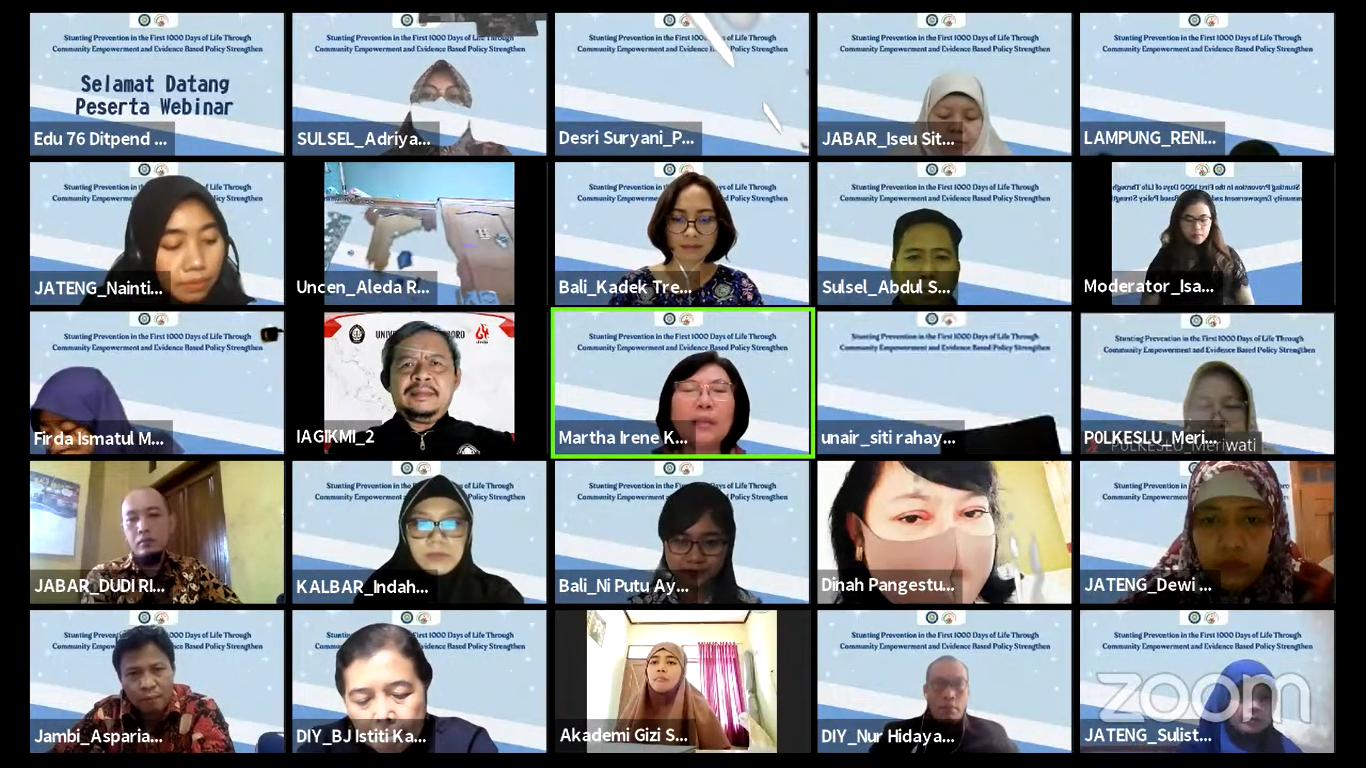UNAIR NEWS – Last Saturday, October 16, 2021, the Faculty of Public Health (FKM) Universitas Airlangga (UNAIR) with Indonesian Public Health Nutritionist Association (IAGIKMI) held a webinar on stunting. Three keynote speakers were invited, Prof. Dr. Sri Sumarmi SKM, M.Sc.; Dr. dr. SA. Nugraheni, M.Kes; and Professor of Mahidol University, Prof. Pattanee Winichagoon, Ph.D.
Opening the event, Prof. Pattanee explained Thailand’s success in reducing malnutrition, including stunting. It is inseparable from the Community-Based Nutrition Program through the active role of village-based health volunteers and community movement.
From the survey results, she showed a significant decline in stunting has occurred since the early 1990s. It maintained at least 10 to 15 percent until 2019.
“It improved a bit even though various things happened, including the Asian economic crisis in 1997, the problem of food prices in 2008, and the severe flood in 2011,” she said.
Prof. Pattanee said that frontline health workers and village health volunteers coordinated to tackle the problem of malnutrition in Thailand. It includes utilizing innovative digital technology to maintain dissemination and monitoring services.
Meanwhile, Prof. Dr. Sri Sumarmi SKM, M.Si., familiarly called Prof. Mamik explained that stunting can be prevented from pre-conception, which is closely related to the First 1,000 Days of Life (HPK) Program.
The concept of pre-conception itself has been the subject of discussion since June 2005. Until 2012, WHO reported that interventions given before pregnancy (pre-conception, ed) positively impacted maternal and child health.
“The 1,000 HPK program is the most important moment in stunting prevention efforts. Because at that time, there was a very rapid development of the body’s important organs,” she said.
On the other hand, Dr. dr. SA. Nugraheni, M.Kes said that Indonesia is one of the countries with a triple-double nutritional problem where stunting is still a priority to be overcome.
Seeing that, in her presentation, she introduced a Posyandu (Integrated Health Service Post) innovation, ‘Jogo Tonggo’. Similar to a regular Posyandu, but its presence in residents’ homes is permanent.
According to her, Satellite Posyandu is an alternative for prevention, early detection, and recovery of malnutrition in the neighborhood. “With this satellite posyandu, we can see who has nutritional problems, where they are located, when the problem occurs, and what the condition is. So that the nutritional problem, God willing, will be solved gradually,” she said.
On that occasion, Vice Dean III of FKM Trias Mahmudiono S.Km, MPH (Nutr.), Gcas, Ph.D gave a speech. He revealed that this activity is a big hope for FKM as a producer of public health workers and nutritionists.
“We need to create power so that alumni have the same struggle. So that Public Health Nutrition can be recognized as a form of profession,” he hoped.
The webinar was attended by academics to health practitioners from various regions in Indonesia. The event was also momentum for the inauguration of new IAGIKMI regional administrators throughout Indonesia. (*)
Author: Erika Eight Novanty
Editor : Khefti Al Mawalia





